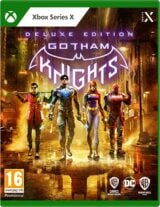FTC says there are currently ‘no substantive’ settlement talks with Microsoft over Activision deal
The US governing body filed a complaint in December

The Federal Trade Commission has said that there have so far been no “substantive” settlement talks with Microsoft over the company’s proposed $69 billion deal to acquire Activision Blizzard.
According to Reuters, FTC attorney James Weingarten claimed during a pretrial hearing on Tuesday that the two sides had yet to have “substantive” discussions, although it’s unclear just how much communication has occurred between the sides.
If it goes to trial, the case will be judged Michael Chappell during hearings set to take place in August 2023. The acquisition will face the European Union at the end of March.
However, it’s possible that both sides could yet agree to concessions before the trial. On Tuesday, Microsoft noted that both EU and UK regulators had not blocked the deal, and that it expected a decision within the next few months.
In December, the FTC announced plans to file a lawsuit in a bid to stop Microsoft’s $69 billion acquisition of Activision, which it argues would enable the company to “suppress competitors” to its Xbox consoles and its subscription content and cloud gaming business.
Following this, Microsoft and Activision hit back at the suggestion, claiming that “The acquisition of a single game by the third-place console manufacturer cannot upend a highly competitive industry,” referring to the ultra-popular Call of Duty franchise, concerns over the exclusivity of which have been a constant refrain since the announcement of the deal.
“The fact that Xbox’s dominant competitor has thus far refused to accept Xbox’s proposal does not justify blocking a transaction that will benefit consumers,” Microsoft claimed. “Giving consumers high-quality content in more ways and at lower prices is what the antitrust laws are supposed to promote, not prevent.”
In its complaint, the FTC claimed Microsoft has a track record of acquiring valuable gaming content, like upcoming Bethesda games Starfield and Redfall, and making them Xbox exclusives, “despite assurances it had given to European antitrust authorities that it had no incentive to withhold games from rival consoles”.
Microsoft rejected these claims in its response while confirming it “anticipates that three future [Bethesda] titles—[redacted], all of which are designed to be played primarily alone or in small groups—will be exclusive to Xbox and PCs”.














